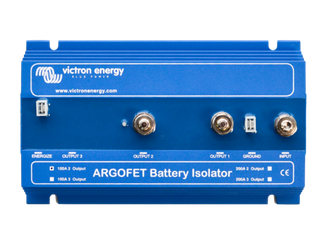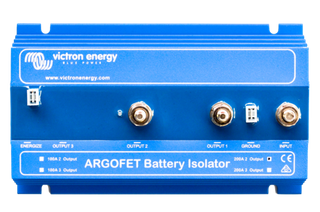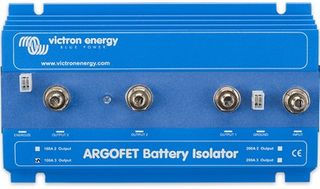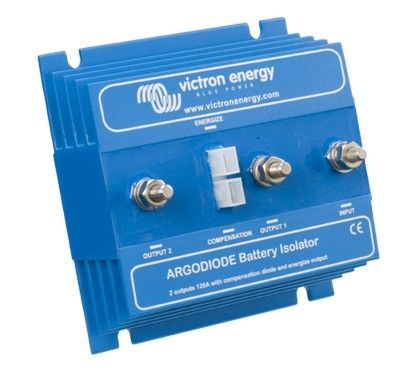
Victron Argo Diode Battery Isolator
Victron Argo Diode Isolators allow simultaneous charging of two or more batteries from one alternator without connecting the batteries together. Discharging the accessory battery for example will not result in also discharging the starter battery.
The Argo Battery Isolators feature a low voltage drop thanks to the use of Schottky diodes: at low current the voltage drop is approximately 0,3 V and at the rated output approximately 0,45 V. All models are fitted with a compensation diode that can be used to slightly increase the output voltage of the alternator. This compensates for the voltage drop over the diodes in the isolator.
Some alternators need DC voltage on the B+ output to start charging. Obviously, DC will be present when the alternator is directly connected to a battery. Inserting a Diode or FET splitter will however prevent any return voltage/current from the batteries to the B+, and the alternator will not start. The new ‘AC’ diode isolators feature a special current limited energize input that will power the B+ when the engine run/stop switch is closed.
| Code | Image | Product Details | Enquire |
|---|---|---|---|
|
ARG080201000
|

|
80A - 2 Battery
|
|
|
ARG100301000R
|
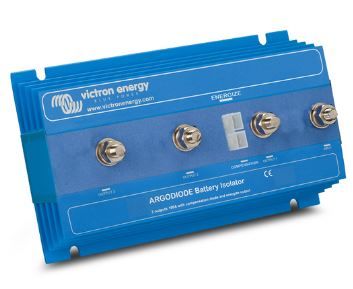
|
100A - 3 Battery
|
|
|
ARG120201020R
|
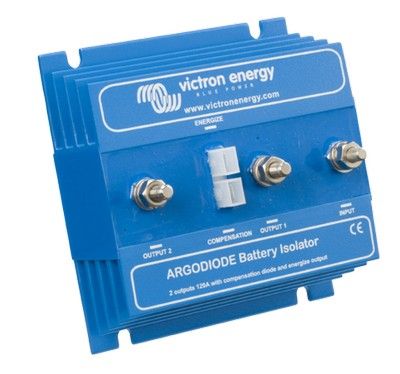
|
120A - 2 Battery
|
|
|
ARG140301020R
|
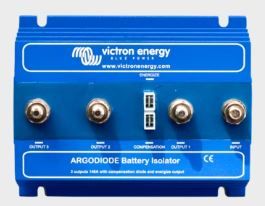
|
140A - 3 Battery
|
|
|
ARG180301020
|
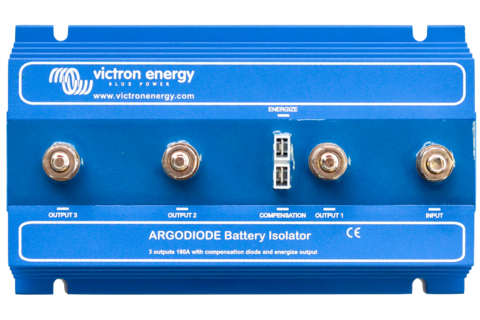
|
180A - 3 Battery
|
|

